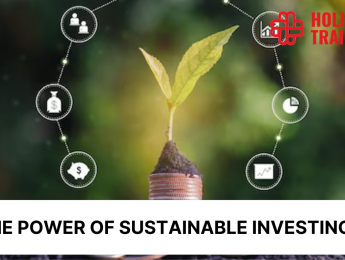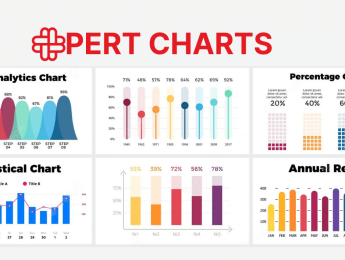- Table of Contents
- Introduction
- What Is Sustainable Finance?
- Why Is Sustainable Finance Important?
- 1. Environmental Protection
- 2. Social Inclusion
- 3. Risk Management
- 4. Resilient Economy
- What Is Transition Finance?
- How Can Sustainable Finance Help Support Restoration?
- 1. Reforestation and Afforestation
- 2. Marine Conservation
- 3. Renewable Energy Infrastructure
- 4. Sustainable Agriculture
- 5. Waste Management
- The Future of Sustainable Finance Development
- Mainstream Integration
- Regulatory Frameworks
- Innovative Financial Instruments
- Technological Advancements
- Global Collaboration
- Conclusion
Introduction
In an era defined by unprecedented environmental challenges, a new financial approach has emerged to address these issues and pave the way for a more sustainable future. Sustainable finance, also known as responsible or green finance, represents a transformative shift in the financial sector that seeks to align economic development with environmental, social, and governance (ESG) considerations. This blog post delves into the world of Sustainable Finance Development, exploring its significance, impact, and the potential it holds for driving positive change.
What Is Sustainable Finance?
Sustainable finance refers to the integration of environmental, social, and governance (ESG) factors into financial decision-making processes. The goal is to promote investments and projects that not only generate financial returns but also have a positive impact on the environment and society. This approach focuses on addressing critical global challenges, such as climate change, resource depletion, social inequality, and corporate responsibility.
Unlike traditional finance, which often prioritises short-term profits, sustainable finance takes a long-term perspective, seeking to foster sustainable economic growth and development without compromising future generations' well-being.
Why Is Sustainable Finance Important?
The urgency to adopt sustainable finance practices stems from the recognition that traditional economic models have contributed to environmental degradation and social inequalities. According to theInternational Monetary Fund, ESG investments, excluding China, have surged to account for 18% of foreign financing in emerging markets in 2022, marking a fourfold increase compared to the average of previous years. By shifting towards sustainable finance, we can redirect capital flows towards businesses and initiatives that are ecologically responsible and socially equitable. Let’s now dig deeper and find out why countries are now adopting ESG investments more than ever:
1. Environmental Protection
One of the most pressing issues of our time is climate change. The Earth's climate is rapidly changing due to human activities, primarily the burning of fossil fuels and deforestation. This has led to rising global temperatures, melting ice caps, extreme weather events, and disruptions in ecosystems. Sustainable finance encourages investments in renewable energy sources such as wind, solar, and hydroelectric power. These investments reduce our dependence on fossil fuels, decrease carbon emissions, and mitigate the impacts of climate change. By supporting clean technologies and environmentally friendly practices, sustainable finance actively contributes to environmental conservation.
Moreover, sustainable finance promotes the concept of a circular economy, where resources are used efficiently, waste is minimised, and products are designed for reuse and recycling. This shift in perspective not only reduces the strain on natural resources but also minimises pollution and promotes sustainable consumption patterns.
2. Social Inclusion
A just and inclusive society is one where everyone has equal opportunities and access to resources, regardless of their background or circumstances. Sustainable finance emphasises the importance of social inclusion by supporting companies that prioritise fair labour practices, diversity, and employee welfare. Businesses that provide equal opportunities, fair wages, and safe working conditions not only enhance the well-being of their employees but also contribute to social stability and harmony.
Furthermore, sustainable finance encourages investments in education, healthcare, and community development. These investments empower individuals and communities, breaking the cycle of poverty and promoting social mobility. By fostering social inclusion, sustainable finance builds resilient communities capable of withstanding economic challenges and uncertainties.
3. Risk Management
In an increasingly interconnected world, risks associated with climate change, regulatory changes, and societal shifts have profound implications for businesses and investors. Climate change-related risks, such as extreme weather events, sea-level rise, and supply chain disruptions, can impact the profitability and viability of companies. Regulatory changes, especially those related to environmental standards, can affect industries ranging from energy to manufacturing. Additionally, shifts in societal preferences and values can influence consumer behaviour, demanding greater transparency and responsibility from businesses.
Sustainable finance addresses these risks by emphasisingESG factors in investment decisions. Companies that are proactive in managing their environmental impact, ensuring ethical governance, and fostering social responsibility are better positioned to adapt to changing market dynamics. By integrating ESG considerations, investors can make informed decisions, mitigating potential risks and safeguarding their investments against future uncertainties.
4. Resilient Economy
A sustainable economy is not just environmentally conscious; it is also resilient in the face of challenges. Natural disasters, economic downturns, and pandemics are inevitable parts of the global landscape. However, a sustainable economy, with its focus on diversification, innovation, and social well-being, is better equipped to withstand these shocks.
Sustainable finance promotes investments in resilient infrastructure, disaster preparedness, and healthcare systems. These investments enhance a nation's capacity to respond to crises, minimise economic disruptions, and protect vulnerable communities. By fostering a resilient economy, sustainable finance ensures that societies can recover swiftly from adversities, reducing the overall impact on people's lives and livelihoods.
In essence, sustainable finance is not just an ethical choice; it is a strategic imperative for businesses, investors, and governments alike. By prioritising environmental protection, social inclusion, effective risk management, and economic resilience, sustainable finance charts a course towards a more sustainable and equitable future. It is a beacon of hope in a world facing unprecedented challenges, offering a path to shared prosperity and a healthier planet for current and future generations.
What Is Transition Finance?
Transition finance is a crucial aspect of sustainable finance that aims to facilitate the transition from high-carbon and environmentally detrimental practices to more sustainable alternatives. Many industries and economies heavily depend on fossil fuels and resource-intensive processes, making an abrupt shift challenging. Transition finance recognises the need for a phased approach, providing financial support to help businesses and sectors shift towards more sustainable practices gradually.
Transition finance involves providing capital and resources to companies that are actively working on reducing their environmental impact and improving their sustainability practices. This could include businesses investing in research and development of greener technologies, companies transitioning from fossil fuels to renewable energy sources, and efforts to optimise resource usage.
How Can Sustainable Finance Help Support Restoration?
Beyond promoting sustainable practices, sustainable finance plays a vital role in supporting ecological restoration and rehabilitation efforts. Restoration finance involves investing in projects and initiatives that repair ecosystems, enhance biodiversity, and rejuvenate natural landscapes. Through strategic financial backing, sustainable finance becomes a catalyst for positive environmental change. Here are the key areas where sustainable finance can make a significant impact:
1. Reforestation and Afforestation
Sustainable finance acts as a lifeline for our forests, supporting ambitious reforestation and afforestation projects. Reforestation involves replanting trees in areas where forests have been cut down or destroyed, helping to restore biodiversity and sequester carbon dioxide from the atmosphere. Afforestation, on the other hand, involves planting trees in areas that were not previously forested. Both initiatives contribute immensely to mitigating climate change, enhancing water resources, and providing habitats for countless species.
Sustainable finance enables the establishment of tree nurseries, employing local communities to grow native tree species. These nurseries become the backbone of reforestation efforts, supplying saplings for large-scale planting projects. Financial support also facilitates the protection of existing forests, employing forest rangers, implementing anti-logging measures, and engaging local communities in conservation efforts. Through these investments, sustainable finance helps combat deforestation and its associated environmental degradation.
2. Marine Conservation
Our oceans, teeming with life and covering more than 70% of the Earth's surface, are essential for the well-being of our planet. Sustainable finance plays a pivotal role in marine conservation efforts. Investments are directed towards sustainable fisheries, supporting practices that ensure fish populations are harvested responsibly, allowing them to replenish naturally. This approach maintains the delicate balance of marine ecosystems, preventing overfishing and preserving biodiversity.
Moreover, sustainable finance aids in the establishment of marine protected areas (MPAs), safeguarding critical habitats and vulnerable species. These areas serve as sanctuaries where marine life can thrive without the threat of human interference. Financial resources are allocated to research and monitoring programmes within these MPAs, enabling scientists to study marine ecosystems and implement effective conservation strategies.
In the fight against plastic pollution, sustainable finance supports initiatives aimed at reducing single-use plastics and cleaning up existing plastic waste from oceans and coastlines. By investing in waste collection infrastructure and awareness campaigns, sustainable finance mitigates the harmful impact of plastic pollution on marine life, ensuring healthier oceans for future generations.
3. Renewable Energy Infrastructure
Transitioning from fossil fuels to renewable energy sources is a cornerstone of sustainable development. Sustainable finance drives this transition by financing renewable energy projects such as solar and wind farms. These projects not only provide clean energy but also reduce dependence on finite fossil fuel resources and curb greenhouse gas emissions.
Investments in renewable energy infrastructure facilitate technological advancements, making clean energy more accessible and affordable. Sustainable finance supports research and development in renewable technologies, leading to innovations that improve energy efficiency and storage capabilities. By funding these initiatives, sustainable finance accelerates the global shift towards a low-carbon economy, mitigating the adverse effects of climate change.
4. Sustainable Agriculture
Agriculture is at the nexus of environmental conservation and food security. Sustainable finance supports regenerative agricultural practices that prioritise soil health, water conservation, and biodiversity. These practices include crop rotation, cover cropping, and reduced chemical pesticide usage, enhancing the resilience of agricultural ecosystems.
Financial support enables farmers to implement agroforestry systems, integrating trees into agricultural landscapes. These systems improve soil fertility, enhance water retention, and provide habitat for beneficial organisms, contributing to sustainable food production. Sustainable finance also aids in the development of precision agriculture technologies, allowing farmers to optimise resource usage, minimise waste, and increase productivity sustainably.
Moreover, investments in sustainable agriculture empower smallholder farmers, especially in developing countries, providing them with access to training, tools, and markets. By promoting fair trade practices, sustainable finance ensures that farmers receive a fair price for their products, enhancing their livelihoods and promoting social equity in rural communities.
5. Waste Management
Sustainable finance is a driving force behind innovative waste management solutions. Investments in recycling facilities, waste-to-energy technologies, and circular economy initiatives promote a sustainable approach to waste management. Recycling programmes, supported by sustainable finance, encourage the separation and recycling of waste materials, reducing the strain on landfills and conserving valuable resources.
Circular economy projects, funded by sustainable finance, focus on designing products for durability, reusability, and recyclability. By encouraging manufacturers to produce goods with a focus on their entire lifecycle, from production to disposal, sustainable finance reduces the environmental impact of consumer products. Investments in waste reduction campaigns and education programmes also raise public awareness, encouraging responsible consumption and waste disposal habits.
In summary, sustainable finance acts as a powerful enabler for ecological restoration and conservation efforts. By strategically directing financial resources towards reforestation, marine conservation, renewable energy infrastructure, sustainable agriculture, and waste management initiatives, sustainable finance contributes significantly to the preservation of our planet's biodiversity, mitigates climate change, and ensures a sustainable future for all. Through these investments, sustainable finance not only repairs ecosystems but also paves the way for a harmonious coexistence between humanity and nature.
The Future of Sustainable Finance Development
As the world grapples with the urgent need for sustainable solutions, the future of sustainable finance development holds both promise and challenges. Several key trends and developments are poised to shape the trajectory of sustainable finance in the coming years, paving the way for a more responsible and environmentally conscious financial landscape.
Mainstream Integration
The integration of sustainable finance principles into mainstream financial practices is a defining trend for the future. Investors and financial institutions are increasingly recognising the importance of ESG considerations in decision-making processes. As awareness grows, more capital is being channelled into environmentally friendly and socially responsible initiatives. The projected increase in ESG integration, as depicted in Table 2, indicates a significant shift towards a more sustainable allocation of capital. This integration not only benefits the environment and society but also enhances the long-term financial resilience of businesses and investments.
Moreover, consumers are becoming more conscious of the environmental and social impact of their investments. The demand for transparent and responsible investment options is driving financial institutions to offer ESG-focused products, further propelling sustainable finance into the mainstream. This trend is indicative of a shift in societal values, where ethical and sustainable considerations are becoming central to financial decision-making.
Regulatory Frameworks
Governments and regulatory bodies are expected to play a crucial role in shaping the future of sustainable finance. The introduction of more stringent ESG disclosure requirements and incentives will encourage businesses to adopt sustainable practices. Regulatory frameworks, such as theSustainable Finance Disclosure Regulation (SFDR) in the European Union, ensure standardised ESG reporting, fostering greater transparency and accountability in financial markets. These regulations provide clear guidelines, empowering investors to make informed decisions based on consistent and reliable ESG information.
In addition to disclosure requirements, governments are likely to introduce tax incentives, subsidies, and grants to promote sustainable initiatives. These financial incentives will encourage businesses to invest in green technologies, renewable energy, and sustainable agriculture. By aligning financial policies with sustainable goals, governments can create an enabling environment for sustainable finance to thrive, driving positive change on a larger scale.
Table 1: Global regulatory approaches to sustainable finance
Innovative Financial Instruments
The future of sustainable finance will witness the development of innovative financial instruments that cater to the diverse needs of investors. Green bonds, sustainability-linked loans, and impact investing funds are just the beginning. These instruments provide investors with specialised avenues to support sustainable initiatives while earning returns on their investments. Green bonds, for instance, are dedicated to financing environmentally friendly projects, ranging from renewable energy infrastructure to sustainable transportation.
Sustainability-linked loans tie the interest rates of the loan to the borrower's sustainability performance, incentivising companies to improve their ESG practices continually. Impact investing funds focus on generating measurable social and environmental impact alongside financial returns, attracting investors who prioritise both profit and purpose. The proliferation of such financial products diversifies investment opportunities, attracting a broader spectrum of investors who are passionate about making a positive difference in the world.
Table 2: Comparative analysis of sustainable finance instruments
Sustainable Finance Instrument | Description | Key Impact |
Green Bonds | Funds environmentally friendly projects. | Reduces carbon emissions and promotes sustainability. |
Sustainability-Linked Loans | Ties loan rates to borrower's sustainability. | Encourages businesses to improve their ESG practices. |
Impact Investing Funds | Focuses on measurable social and environmental impact. | Generates positive social and environmental change. |
ESG Integration in Mainstream Finance | Incorporates ESG factors into financial decision-making. | Aligns investments with ethical and sustainable practices. |
Climate Funds | Invests in climate-related projects. | Addresses climate change and promotes renewable energy. |
Technological Advancements
Emerging technologies are set to revolutionise the way sustainable finance operates. Blockchain technology, with its immutable and transparent ledger system, enhances the traceability of funds and ensures that investments are directed towards genuine sustainable projects. Smart contracts on blockchain platforms can automate ESG compliance, ensuring that businesses adhere to predefined sustainability criteria before receiving funding.
Artificial intelligence (AI) plays a significant role in the assessment of ESG-related risks and opportunities. AI algorithms can analyse vast datasets, identifying trends and patterns related to environmental, social, and governance factors. This analytical prowess enables investors to make data-driven decisions, maximising the positive impact of their investments. AI-driven impact assessments also provide valuable insights into the effectiveness of sustainable projects, enabling continuous improvement and optimisation.
Global Collaboration
The challenges posed by climate change, biodiversity loss, and social inequality are inherently global. As such, international collaboration is imperative for the success of sustainable finance. Countries, financial institutions, environmental organisations, and multinational corporations must collaborate to address these challenges collectively. Initiatives like the United Nations Principles for Responsible Banking exemplify the collaborative spirit required for sustainable finance to transcend borders.
Global collaboration not only pools resources and expertise but also facilitates the sharing of best practices. By learning from successful sustainable finance initiatives in different parts of the world, countries and institutions can accelerate their own sustainable development efforts. Partnerships between developed and developing nations can facilitate technology transfer, capacity building, and financial support, ensuring that sustainable finance becomes a global norm rather than an exception.
Conclusion
Sustainable finance represents a profound transformation in the financial landscape, aligning economic growth with environmental protection and social well-being. By integrating ESG considerations into financial decision-making, we can direct capital towards building a more sustainable and equitable future.
Transition finance bridges the gap between the present and a greener future, supporting businesses in their journey towards sustainability. Furthermore, sustainable finance's focus on restoration and conservation endeavours can help repair our planet's ecosystems and mitigate the impacts of climate change.
As we look to the future, sustainable finance is poised to become a driving force in reshaping the global economy. With increasing integration, supportive regulatory environments, innovative financial instruments, and global collaboration, sustainable finance will play a pivotal role in building a more resilient and prosperous world for generations to come. By embracing sustainable finance today, we can sow the seeds for a greener and more inclusive future tomorrow.
If you're eager to become an agent of positive change in the financial world, check out our course, ‘Sustainable Finance Development,’ where you'll gain invaluable insights and practical skills to drive impactful sustainable investments and foster a greener and more resilient global economy. Embrace the future of finance, and together, let's create a world where prosperity goes hand in hand with sustainability.


























